by Diane Gold on August 2, 2016.
This article focuses on conflict resolution education and how we need it as early as our first days in school.
Also in this issue….
by Diane Gold on April 26, 2016.
Today’s issue focuses on Eastern And Western Medicine and the HOLE between them that exists because of lack of integration – and how to fix it.
Also in this issue….
by Diane Gold on April 5, 2016.
Today’s issue focuses on being homeless and how we truly don’t think about situations until we are in them.
Also in this issue….
by Diane Gold on March 22, 2016.
It’s doing well Diane Gold. Lovin’ it and grateful.
Today’s issue focuses on rebirth, cathartic experience, becoming new again and again and again. This one was inspired by my dancing for 2 1/2 hours at a 5Rhythms dance workshop.
Also in this issue….
by Diane Gold on March 8, 2016.
It’s doing well Diane Gold, 1000% better than last time I wrote. I wanted to say hello again, thank you for reading my last issue, and let you know I am feeling good. Breathing normally and strong. Still and forever living each moment as it comes. Don’t know why I’m better; don’t know why I was sick. Lovin’ it and grateful.
Also in this issue….
by Diane Gold on January 19, 2016.
It’s Diane Gold. I wanted to say hello one last time This may be my last mag, although I hope to write when I can.
Also in this issue….
by Diane Gold on December 15, 2015.
Our main essay talks about supply chain transparency. Most of the time, we don’t think about what goes into a product we use. Kudos to California for having a required disclosure of awareness.
Also in this issue….
by Diane Gold on November 17, 2015.
Our main essay talks about belief systems and the habits we form and can reform along the way.
Also in this issue….
by Diane Gold on October 13, 2015.
Our main essay talks about recycling, why we do it and whose responsibility it is.
Also in this issue….
by Diane Gold on October 6, 2015.
Our main essay talks about the term “conventional produce” and how it blinds us to the GMOs that are commonly included in this category.
Also in this issue….
by Diane Gold on September 29, 2015.
Our main essay talks about people who are the abuser and why we abuse.
Also in this issue….
by Diane Gold on September 22, 2015.
Our main essay talks about those of us who are abused at home and why some of us do not remove ourselves from the situation.
Also in this issue….
by Diane Gold on March 17, 2015.
Our main essay talks about water shortage and why we are involved, no matter how much water we have.
Also in this issue….
by Diane Gold on March 10, 2015.
Our main essay talks about learning how to learn, the mistake we make by not teaching the process as soon as we start school.
Also in this issue….
by Diane Gold on February 24, 2015.
Our main essay talks about extinction and our responsibility through a guest post by Richard Oppenlander, D.D.S., researcher, lecturer and author.
Also in this issue….
by Diane Gold on January 20, 2015.
Our main essay talks about 6 ways to get productive and be gloriously happy while producing.
Also in this issue….
by Diane Gold on January 6, 2015.
Our main essay talks about how everything we do is making a difference. The author lists what’s possible and mentions food labeling, wearing sustainable clothing, as well as topics important to her.
Also in this issue….
by Diane Gold on December 9, 2014.
Our main essay talks about the secret of habit change, which is to step, make that move, do.
Also in this issue….
by Diane Gold on December 2, 2014.
Our main essay talks about what causes our urges and a simple behavior change strategy.
Also in this issue….
by Diane Gold on November 18, 2014.
Our discussion today is to announce our water campaign. Together, we can build 1 single well that can provide for 500-1,000 people with 10 years of water. Please take a minute to ponder this one. Anyone who donates can have…at no charge.
Also in this issue….
by Diane Gold on November 11, 2014.
Our main essay talks about how the act of kindness saves us from the act of rushing.
Also in this issue….
by Diane Gold on November 4, 2014.
Our main essay talks about 10 things that may not suck in the life of someone who thinks life sucks.
Also in this issue….
by Diane Gold on October 28, 2014.
Our main essay talks about whether we choose to be material and pursue money in the hierarchical system or if we decide to focus on a life of freedom that works on spiritual benefits first.
Also in this issue….
by Diane Gold on October 14, 2014.
Our main essay talks about how to replace a habit. Easier than we think, even if it’s been excruciating in the past!
Also in this issue….
by Diane Gold on September 30, 2014.
Our main essay talks about donations that Big Food and Big Drug companies give to cancer research and other disease organizations so they will become beholden to them.
Also in this issue….
by Diane Gold on September 9, 2014.
Our main essay talks about how cacao, the super food, first used by Latin Americans as early as 1400 B.C. E., benefits our health.
Also in this issue….
by Diane Gold on August 19, 2014.
Our main essay talks about the habit of meditation and what it truly does for us.
Also in this issue….
by Diane Gold on August 12, 2014.
Our main essay talks about how, sometimes, our inflated ego can be cruel in order to cover up our own insecurities.
Also in this issue….
by Diane Gold on August 5, 2014.
Our main essay talks about how prejudice is a habit and how that habit can be replaced with a new and more useful one.
Also in this issue….
by Diane Gold on July 29, 2014.
Our main essay is about turmeric, its benefits and its patentability and why drug companies don’t study what they can’t patent.
Also in this issue….
by Diane Gold on July 22, 2014.
Our main essay focuses on a “what if” scenario. “What if” the largest multinational companies’ missions were to benefit the world’s poor with food, water, clothing, housing, health care! This article suggests a possible model for this to happen. It also offers food for thought to encourage us to innovate the solution for ourselves.on patient’s rights and how our accepting doctor’s orders is not in our best interest until we’ve researched options and been given choices.
Also in this issue….
by Diane Gold on July 15, 2014.
Our main essay focuses on patient rights and how our accepting doctor’s orders is not in our best interest until we’ve researched options and been given choices.
Also in this issue….
by Diane Gold on July 8, 2014.
Our main essay mentions a concept we used to believe and how we have moved to believe our current perception. It offers the reason for presenting new information to people so that they can evolve their thinking.
Also in this issue….
by Diane Gold on July 1, 2014.
Our main essay talks about trusting media and the mistakes we make by not recognizing relationships that deter most media companies and their employees from reporting the truth, the whole truth and nothing but the truth.
Also in this issue….
by Diane Gold on June 24, 2014.
Our main essay talks about making profit from peace, rather than war, and proposes a competition based TV show to generate investors.
Also in this issue….
by Diane Gold on June 17, 2014.
Our main essay is about how to stand up for our right to freedom using the example of the GMO labeling vote in Vermont.
Also in this issue….
by Diane Gold on June 10, 2014.
Our main essay is about the process of delaying gratification, how it’s done, when we might decide to do it and what it builds in our foundation.
Also in this issue….
by Diane Gold on May 27, 2014.
Our main essay is about taking action toward protecting our food supply from genetic modified organisms (GMOs).
Also in this issue….
by Diane Gold on Apr. 1, 2014.
Our main essay is about many of the conflicts of interest that cause some of the fractures in our health care system and how we are NOT doomed.
Also in this issue….
by Diane Gold on Mar. 25, 2014.
Our main essay is one of my favorites. It’s about cultivating peaceful methods to resolve conflict and how our actions may affect the future of peace.
Also in this issue….
by Diane Gold on Mar. 18, 2014.
This week’s main essay is about how slouching really destroys our health. Who knew?
Also in this issue….
by Diane Gold on Feb. 18, 2014.
Our main essay talks about the health care law and how it may cause people to work less as W-2 employees.
Also in this issue….
by Diane Gold on Feb. 11, 2014.
Our essay delivers the simplest, universal formula for how to change a habit. This was inspired by my talk at the Women Referring Women luncheon.
Also in this issue….
by Diane Gold on February 4, 2014.
Our main essay shares many of the ways in which evidence-based medicine can be manipulated. (It also thanks those who are honest and noble in the industry.)
Also in this issue….
by Diane Gold on Jan. 14, 2014.
Our main essay is the third installment of habits in medical care.
Also in this issue….
by Diane Gold on Jan. 7, 2014.
This week, our main essay talks about personal development and how it can change the world.
Also in this issue….
by Diane Gold on Dec. 31, 2013.
Our Happy New Year main essay is about habit change and New Year’s resolution and, of course, success.
Also in this issue….
by Diane Gold on Dec. 24, 2013.
This week, our main essay talks about developing the habit of forgiveness and how to go about it even when it seems impossible.
Also in this issue….
by Diane Gold on Dec. 17, 2013.
This week, our main essay talks about how we complain, exclusive of solving, and the importance of solutions.
Also in this issue….
by Diane Gold on Dec. 3, 2013.
This week, our main essay talks about clinical trials that are not reported. We rarely question this since we are in the habit of not questioning what doctors or medical professionals say.
Also in this issue….
by Diane Gold on Nov. 26, 2013.
This week, our main essay talks about being an enabler, someone so wrapped up in a user’s behavior, it’s bad news for both people.
Also in this issue….
by Diane Gold on Nov. 19, 2013.
This week, our main essay talks about how, through learning how to maintain our habitual behavior, we develop very valuable skills that are beneficial to us and to the world.
Also in this issue….
by Diane Gold on Oct. 22, 2013.
This week we are publishing our 100th Issue, which means we are celebrating our Second Anniversary. Therefore, we have a special main essay which is a list of 100 things that may make us feel gratitude.
Also in this issue….
by Diane Gold on Oct. 14, 2013.
This week, our main essay offers three habit changes that turn sickness into health.
Also in this issue….
by Diane Gold on Oct. 7, 2013.
This week, we bring you our main essay about groups that influence habit change and what’s missing from many of them.
Also in this issue….
by Diane Gold on Sept. 30, 2013.
This week, we bring you the one secret to habit change.
Also in this issue….
by Diane Gold on Sept. 23, 2013.
This week, we bring you THE mistakes of habit change that seem universal to humans. From these come the commandments to change a habit.
Also in this issue…
by Diane Gold on Sept. 16, 2013.
This week, we bring you the highlights of our interview with George Love, Doctor Of Oriental Medicine who demystifies it for all of us.
Also in this issue…
by Diane Gold on Sept. 9, 2013.
This week, our main article focuses on a study about gut microorganisms as a possible technique for weight loss.
Also in this issue…
by Diane Gold on Sept. 2, 2013.
This week, our main article focuses on our ability to temper our forgiveness and our revenge.
Also in this issue…
by Diane Gold on Aug. 26, 2013.
This week, our main article focuses on how the significance of how we achieve happiness is detected and processed by our genes to our benefit or our detriment.
Also in this issue…
by Diane Gold on Aug. 19, 2013.
This week, our main article focuses on food and supplement labels and how we form habits as a result.
Also in this issue…
by Diane Gold on Aug. 12, 2013.
This week, our main article focuses on the idea that we are habit masters from all the training we have given ourselves with various life behaviors. There are 12 proposed action steps.
Also in this issue…
by Diane Gold on Aug. 5, 2013.
This week, our main article talks about the cost of health care. There are 11 possible action steps.
Also in this issue…
by Diane Gold on July 29, 2013.
This week, our main article talks about personal liberation and what it means for habit change. There are 10 action steps.
Also in this issue…
by Diane Gold on July 15, 2013.
This week, our main article talks about one habit that successful people all know about. Almost anyone can learn it through our action steps, included.
Also in this issue…
by Diane Gold on June 24, 2013.
This week, our main article focuses on habits in medical care: autopaying our bills.
Also in this issue…
by Diane Gold on June 17, 2013.
This week, our main article focuses on THE habit of the mind: inflexibility and three scenarios to recognize.
Also in this issue…
by Diane Gold on May 27, 2013.
This week, our main article focuses on why to change a habit and how that ties to our legacy.
Also in this issue…
by Diane Gold on May 20, 2013.
This week, our main article focuses on changing our food habits as we have more knowledge of GMOs (genetically modified organisms) and foods that are labeled “organic.”
Also in this issue…
by Diane Gold on Apr. 29, 2013.
This week, our main article focuses on the use of the words “guru, master and mentor.”
Also in this issue…
by Diane Gold on Apr. 22, 2013.
This week, our main article focuses on fitness exercises and how we train them. Tai chi is first in the title in honor of World Tai Chi Day, Saturday.
Also in this issue…
by Diane Gold on Apr. 15, 2013.
This week, our main article focuses on the peace process formula. It is the third installment in the series.
Also in this issue…
by Diane Gold on Apr. 8, 2013.
This week, our main article focuses on women as slaves and how we change this habit.
Also in this issue…
by Diane Gold on Apr. 1, 2013.
This week, our main article focuses on tai chi and how tai chi principle can help change a habit.
Also in this issue…
by Diane Gold on Mar. 25, 2013.
This week, our main article is about martial arts of the mind. This article transpired as a discussion for a kung fu student who needed to understand that the physical exercises are the tools for the accomplishments of the mind. This article is a reminder of that truth.
Also in this issue…
by Diane Gold on Mar. 4, 2013.
This week, our main article talks about the gender issue as it relates to women.
Also in this issue…
by Diane Gold on Feb. 25, 2013.
This week, our main article talks about the fact that Peace needs a bridge in order to make it real.
Also in this issue…
by Diane Gold on Feb. 18, 2013.
This week, we have an article about how to change a habit by realizing how much we have.
Also in this issue…
by Diane Gold on Jan. 28, 2013.
This week, we talk about Turning Habits Into Health and the 1-step at a time approach to habit change.
Also in this issue…
by Diane Gold on Jan. 14, 2013.
This week, we talk about how drinking water can temper food cravings habitually. We also consider that water is not in abundance for all people.
Also in this issue…
by Diane Gold on Jan. 7, 2013.
First issue in 2013, and we are raring to go!
This week’s article talks about maximizing our food cravings so that we can be healthier.
Also in this issue…
hr noshade=”noshade” />
by Diane Gold on Dec. 24, 2012.
This week’s article talks about crossroads and the ways we handle them when they come.
Also in this issue…
by Diane Gold on Dec. 17, 2012.
This week’s article talks about the appetite and how saving someone other than ourselves can balance our appetite.
Also in this issue…
by Diane Gold on Dec. 10, 2012.
Our main article offers phase 2 of the peace process formula begun last week. It has great promise, so it would be great if you would participate.
Also in this issue…
by Diane Gold on Dec. 3, 2012.
This issue is dedicated to my father who passed 49 years ago yesterday at age 49. To Harry!
Our main article offers a strategy for the peace process whose doing can reduce one’s weight by the very focus of the activity.
Also in this issue…
by Diane Gold on September 24, 2012.
This week’s main article is about Belief In Self and how it is possible to create this belief through a 5 simple techniques.
Also in this issue…
by Diane Gold on August 27, 2012.
This week’s main article is about Writing For Weight Loss. The idea is that when we are writing, we are focused on writing.
There’s also a link to get your own blog within 15 minutes.
Also in this issue…
by Diane Gold on August 13, 2012.
Last week, our main article mentioned freecycling. This week, our main article is about charity and how it can help our daughters look outside themselves.
Also in this issue…
by Diane Gold on August 6, 2012.
As a treat, we offer 3 life-changing action steps that are so simple, even though they are right under our very noses on a daily basis. And, yes, our main article, as promised, is about moving.
Also in this issue…
by Diane Gold on June 4, 2012.
Our main article is about how the uncontrollable urges to eat are like the irrational prejudices we have for other people.
Also in this issue…
by Diane Gold on May 21, 2012.
Our featured essay is about preparation. There are always start up steps when we embark on a new program. We are so driven to start our new meal plan that we sometimes forget to prepare.
Also in this issue…
by Diane Gold on May 14, 2012.
Our featured essay is about motivation and the things we do to get it. When must we change circumstances; when must we change ourselves?
Also in this issue…
by Diane Gold on April 23, 2012.
Because World Tai Chi And Chi Kung Day is this coming Saturday, April 28, our main article talks about its true purpose, and, more than that, the real mission of doing tai chi. This is an impactful subject, and comments are requested.
Also in this issue…
by Diane Gold on April 2, 2012.
Our main essay in this issue, I’m happy to say, talks about Creating Power. There are so many reasons we need power in this world. We need to stop giving it all away.
Also in this issue…
by Diane Gold on March 5, 2012.
I am happy to bring you a discussion about one of the most impactful studies of my life. that of Tai Chi. Our main article talks about how this is a wonderful tool for weight loss in so many ways.
Also in this issue…
by Diane Gold on February 27, 2012.
Our main article talks about how we are affected by media underneath our consciousness and how this can affect the way we eat.
Also in this issue…
div>
by Diane Gold on February 6, 2012.
Our main article is dedicated to all those moms and daughters who are juggling many of life’s challenges, including weight issues. May they choose to find the time.
Also in this issue…
by Diane Gold on January 30, 2012.
Our main article was written by speaker and author, Suzanne Kovi, whose mission is to inspire women and kids to move into courageous action.
Also this issue…
by Diane Gold on November 7, 2011.
If we could have one wish to change one thing about ourselves, what would it be?
This main article looks at the importance of focus and follow-through. It contains a 10-point outline of how to find your way and get your wish.
Also in this issue…
by Diane Gold on October 31, 2011.
In our main article, we talk about decision making. Most of us concern ourselves that, if we make a decision, we are locked into it. This causes inaction and tension. It is also far from being written in stone in most cases. Yes, if you write in stone, it’s hard to erase; but we can ease into many decisions by making short-term commitments, such as an hour at a time.
Also in this issue…
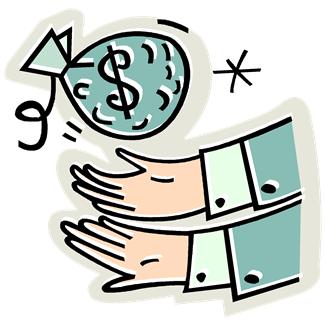 It’s OK to give to charity so that we feel good because the result is that someone gets.
It’s OK to give to charity so that we feel good because the result is that someone gets. It’s OK to give to charity because we want to show off and wear fancy clothes, get our picture in the Society section of our paper, compete with our neighbors or counterparts in charity; because the result is that if we give, someone gets.
It’s OK to give to charity because we want to show off and wear fancy clothes, get our picture in the Society section of our paper, compete with our neighbors or counterparts in charity; because the result is that if we give, someone gets.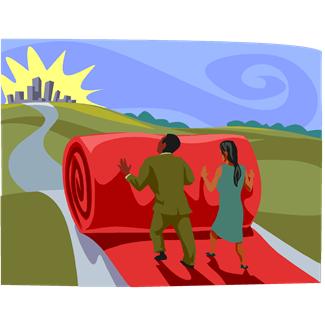 Our act of charity is separate from the dynamics of family life. Because we are working or socializing to help others, we don’t have enough time to worry about our home, our money, ourselves. We are too busy saying,
Our act of charity is separate from the dynamics of family life. Because we are working or socializing to help others, we don’t have enough time to worry about our home, our money, ourselves. We are too busy saying,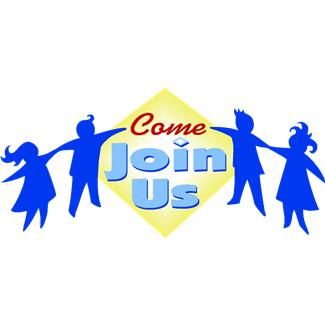
 Take a look at programs like Just Like My Child, a foundation that has brought the first doctor, the first roof and floor to any school in Uganda. Watch The Ron Clarke Story, a movie about a creative teacher who got through to dissatisfied have-not children in Harlem, NY by introducing them to wildly happy have-not children in South Africa as part of their education; or Big Cat Rescue in Tampa that saves large and small cats that have been abandoned or abused.
Take a look at programs like Just Like My Child, a foundation that has brought the first doctor, the first roof and floor to any school in Uganda. Watch The Ron Clarke Story, a movie about a creative teacher who got through to dissatisfied have-not children in Harlem, NY by introducing them to wildly happy have-not children in South Africa as part of their education; or Big Cat Rescue in Tampa that saves large and small cats that have been abandoned or abused.
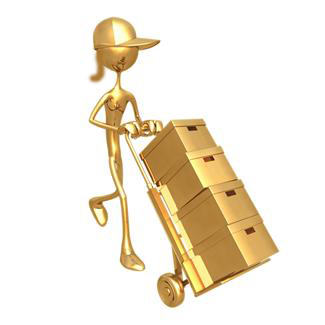 by Diane Gold on August 6, 2012.
by Diane Gold on August 6, 2012. Being in a new environment has given me a clean slate. It was a disruption in my life that has been freeing, energizing and eye opening. As a matter of fact, the training I do as a tai chi mentor works on the premise that every day is a new day and is an opportunity for a new beginning.
Being in a new environment has given me a clean slate. It was a disruption in my life that has been freeing, energizing and eye opening. As a matter of fact, the training I do as a tai chi mentor works on the premise that every day is a new day and is an opportunity for a new beginning. I gave away a pair of socks that belonged to a previous relationship I had. Who would have thought this would make a difference? But the actual removal of this tiny little item from my drawer caused me to feel an emotional blockage empty itself and feel free.
I gave away a pair of socks that belonged to a previous relationship I had. Who would have thought this would make a difference? But the actual removal of this tiny little item from my drawer caused me to feel an emotional blockage empty itself and feel free. One of the most amazing things my move taught me is the importance of living simply. The amount of boxes that were in each room actually inhibited my respiration, plus the adhesive holding the boxes together affected my breathing. The biggest factor was that the collection of “things” I had accumulated over the years was resident in my mind. I realized the importance of minimizing.
One of the most amazing things my move taught me is the importance of living simply. The amount of boxes that were in each room actually inhibited my respiration, plus the adhesive holding the boxes together affected my breathing. The biggest factor was that the collection of “things” I had accumulated over the years was resident in my mind. I realized the importance of minimizing.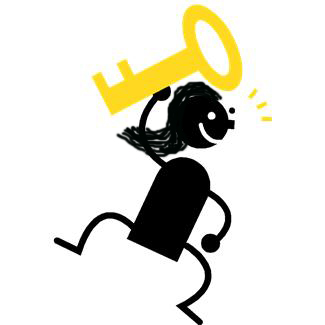 So what is the key to this tolerance that is the same for losing weight, gaining weight, stopping our urges, removing our prejudice? And how do we get it?
So what is the key to this tolerance that is the same for losing weight, gaining weight, stopping our urges, removing our prejudice? And how do we get it?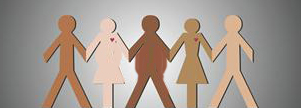 Similarly, the more we develop the ability to control our urges, such as eating chocolate, drinking soda or maligning a religion; the more we can exercise tolerance of ourselves and others.
Similarly, the more we develop the ability to control our urges, such as eating chocolate, drinking soda or maligning a religion; the more we can exercise tolerance of ourselves and others.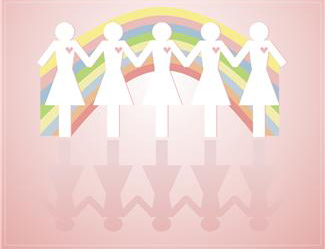 The BIG ACTION STEP, should we choose to take it, is that we must look at our homogeneity. We must celebrate our sameness and be enlightened by it.
The BIG ACTION STEP, should we choose to take it, is that we must look at our homogeneity. We must celebrate our sameness and be enlightened by it. If I could animate, I would draw a giant globe with people in every country representing all of us. Every time any one of us executed a prejudicial act, even if against ourselves; one of the cutout figures would collapse, only to be regenerated by a positive act, such as generosity or forgiveness. If we saw this visual representation on an ongoing basis, which measured our love and hate, we might more easily cherish, forgive and love each other.
If I could animate, I would draw a giant globe with people in every country representing all of us. Every time any one of us executed a prejudicial act, even if against ourselves; one of the cutout figures would collapse, only to be regenerated by a positive act, such as generosity or forgiveness. If we saw this visual representation on an ongoing basis, which measured our love and hate, we might more easily cherish, forgive and love each other.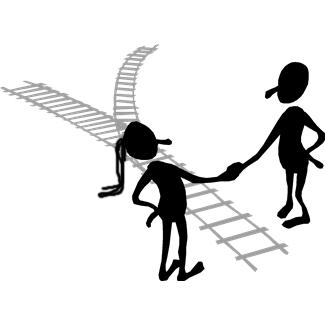 I can think of the many times I have said,
I can think of the many times I have said,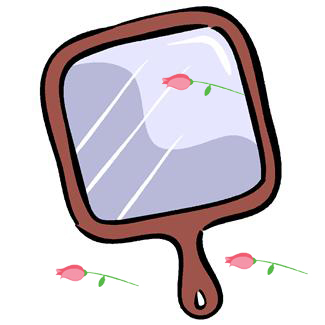 5) Once a day, we should look in the mirror at our lips smiling and know that we have just seen a very worthy human being.
5) Once a day, we should look in the mirror at our lips smiling and know that we have just seen a very worthy human being. As someone who enjoys teaching, my main focus in passing on self-help is to teach people that it is easier and more effective to create smooth, one-step transitions in our lives than heart-wrenching, deprivation-based pathways. I am not saying that we don’t have to work hard to achieve change. I am saying that our attitude about the work can come from a place of endowment and not of hardship.
As someone who enjoys teaching, my main focus in passing on self-help is to teach people that it is easier and more effective to create smooth, one-step transitions in our lives than heart-wrenching, deprivation-based pathways. I am not saying that we don’t have to work hard to achieve change. I am saying that our attitude about the work can come from a place of endowment and not of hardship. I remember how I really wanted to motivate a great romantic relationship with my live-in partner. I was smothering, jealous, hovering and naggy, not so much, outwardly, but inside. I was, of course, not motivating the responses I wanted. I was acting from attachment, short- sighted perception and delusion. I couldn’t see the forest because the trees were blocking my view.
I remember how I really wanted to motivate a great romantic relationship with my live-in partner. I was smothering, jealous, hovering and naggy, not so much, outwardly, but inside. I was, of course, not motivating the responses I wanted. I was acting from attachment, short- sighted perception and delusion. I couldn’t see the forest because the trees were blocking my view. Whatever made me cry may have come with me to NY since I didn’t get to deal with this teacher torture in Philadelphia. My point is that I could have had the same reaction to some issue in NY which stemmed from not being able to fit in. I didn’t have such issues, so maybe, in this case, it was the teacher.
Whatever made me cry may have come with me to NY since I didn’t get to deal with this teacher torture in Philadelphia. My point is that I could have had the same reaction to some issue in NY which stemmed from not being able to fit in. I didn’t have such issues, so maybe, in this case, it was the teacher. There are times when it makes sense to move. When we are teens and go to a particular school, if we have friends; moving is devastating. If we have none, it is a blessing. When we are adults and are leaving a broken relationship, a dead-end job, a family tragedy; we are moving ourselves. But we get to see new people, trees, streets. This is motivating and empowering. So many of the bonds that bear down on our ability to inspire ourselves or to be productive are left behind.
There are times when it makes sense to move. When we are teens and go to a particular school, if we have friends; moving is devastating. If we have none, it is a blessing. When we are adults and are leaving a broken relationship, a dead-end job, a family tragedy; we are moving ourselves. But we get to see new people, trees, streets. This is motivating and empowering. So many of the bonds that bear down on our ability to inspire ourselves or to be productive are left behind. When we begin a new food plan, it is exciting. It’s a chance to succeed. We have that motivated feeling because we are ready, and nothing is there to stop us. We are working with that clean slate.
When we begin a new food plan, it is exciting. It’s a chance to succeed. We have that motivated feeling because we are ready, and nothing is there to stop us. We are working with that clean slate.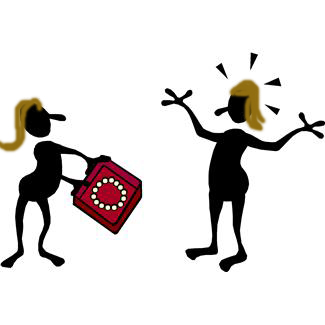 I have a special exercise gift I want to share so that we can all feel results almost immediately. It comes with a request, and that is that you commit to do it for 1 week. For those who choose to do it for 1 week, I ask that, if you want to continue, commit for 14 more days. After the 14 days, I ask for another 14 days. There are really no strings attached, but I want you to feel the present.
I have a special exercise gift I want to share so that we can all feel results almost immediately. It comes with a request, and that is that you commit to do it for 1 week. For those who choose to do it for 1 week, I ask that, if you want to continue, commit for 14 more days. After the 14 days, I ask for another 14 days. There are really no strings attached, but I want you to feel the present.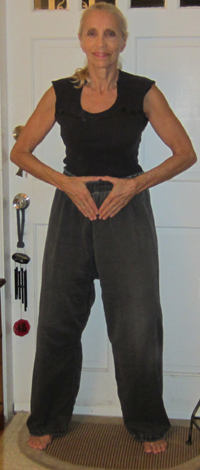 Please read this lower back warning before starting.
Please read this lower back warning before starting.





